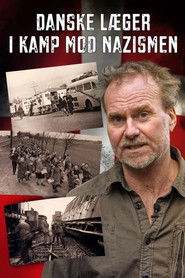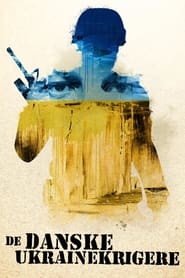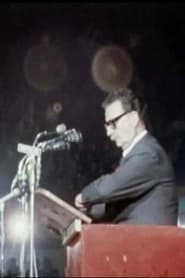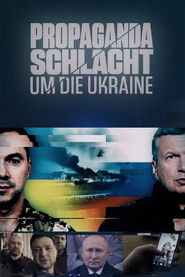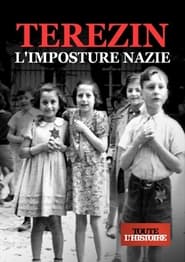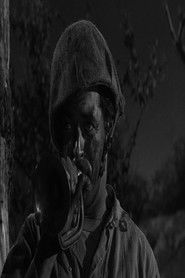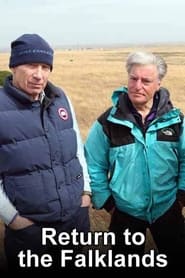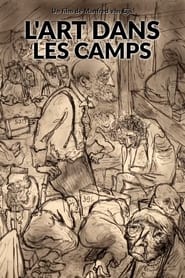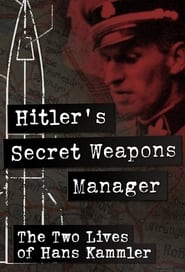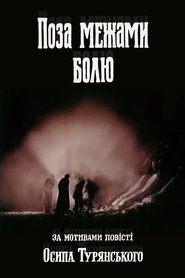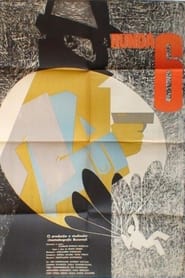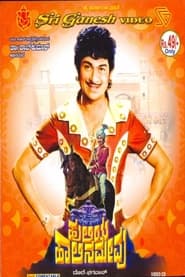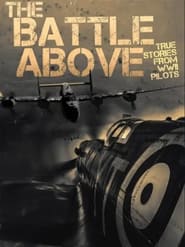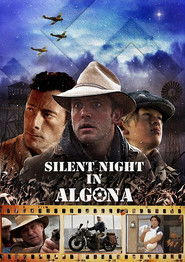Top Rated War Movies on Tub Tv - Page 301
-
2 Victory Square, Kyiv
2023
star 924 February 2022: Russia invades Ukraine. Romain Goupil leaves for Kyiv in a hurry. It was an imperative decision for him to go and support the Ukrainian resistance by filming to bear witness. He left without knowing if he would find a family ready to welcome him to share with them life day after day under the threat of bombing. Finally, the Kyiv circus welcomed him. Romain spent a month in this closed environment imposed by the war on men and animals. -
Ukrainian Vendetta
1991
Ukrainian Vendetta
1991
star 6The Hitlerian army has merely encroached upon the territory of Ukraine, and the majority of the local people have been already ready to cave in to a new regime. The Ukrainian policemen have killed the boy. It is clear that there is no hope to expect the justice from the invaders, that’s why the killed boy’s mother declares the war on the hangsman. -
Eis Frei
2008
-
Propaganda Battle Over Ukraine
2023
star 8The Russian war of aggression in Ukraine is not only waged with bombs, rockets and rocket-propelled grenades, but also in the media. It is a "propaganda battle" internally and externally. Russia spreads targeted disinformation in order to systematically devalue news. At the same time, their own population should be convinced that they want to liberate Ukraine from Nazis. Ukraine's narrative wants to emotionally mobilize its own population and strengthen resistance to the aggressor. Spindoctors are of particular importance in the propaganda battle over Ukraine. On the Ukrainian side, it's often influencers like Oleksiy Arestovych. On the Russian side, Vladimir Solovyov, Putin's snout, is supposed to sell the war to his own people with his daily TV talks. The documentary shows the new front lines of virtual warfare and provides insights into the populists' bag of tricks on social networks. -
Primary Position
2023
Primary Position
2023
star 2Two teens, Darnell Jackson & Tracy Lavelle lived a turbulent life in the trying urban streets of Chicago Illinois. Everything changed when Darnell convinces Tracy to skip college and join the military. While trying to do the right thing with helping Ukraine against the Russians, Things don't go as planned! Darnell goes back to Chicago where he must face new enemies, A corrupt mayor & a city full of hate. What will Darnell do? -
Day is Done
1955
Day is Done
1955
star 6During the 1951 rout of the American army in Korea, a battle-hardened sergeant tries to reinvigorate his men with a bugle picked up by the side of the road. -
Return to the Falklands
2012
star 10To mark 30 years since the Falklands War, this documentary follows three men back to the islands. For veteran Simon Weston, the journey is an opportunity to experience some of the stunning wildlife on Sea Lion Island. -
L'art dans les camps
2023
-
Hitler’s Secret Weapons Manager – The two Lives of Hans Kammler
2020
star 7Did the man behind Hitler's secret weapons program survive the war? Was SS General Hans Kammler covertly brought to the USA to safeguard his knowledge? Allegedly he had committed suicide on 9 May 1945. Yet, recently found documents contradict the official version. Kammler controlled a widespread network of underground production sites vital to the German war effort. But Kammler was not merely in charge of the latest state of the art weapons technology. The former architect and civil engineer was also one of the key figures behind the construction of concentration camps and the systematic employment of their inmates as forced laborers. In the end, he escaped being charged as a war criminal at the Nuremberg trials. -
Beyond the boundaries of pain
1989
star 6The screen adaptation of Osip Turyansky's novel "Beyond the boundaries of Pain", which is considered one of the best works, depicting the First World War as a hell through which seven people doomed to death, including the future author of the novel, passed. -
Runda 6
1965
Runda 6
1965
star 6In August 1944, when Hitler's troops were leaving the territory of Romania under the onslaught of the Soviet Army, German intelligence developed a plan under the code name "Round 6", the fulfillment of which was to destroy the oil industry. But as a result of a complex and dangerous struggle, the Romanian patriots managed to destroy the intrigues of the enemies. -
Huliya Halina Mevu
1979
Huliya Halina Mevu
1979
star 10Chengumani is commander-in-chief in the 18th-century Coorg region of present-day Karnataka. He becomes the king's commander-in-chief after saving his life, but his life gets complicated when he falls in love with Poovi and marries her in disguise. The movie was dubbed in Telugu as Prachanda Bheri. This was also Rajkumar's first cinemascope movie. -
The Battle Above: True Stories From WWII Pilots
2020
star 5Hear the incredible accounts from military officers on both sides of the war as they recount harrowing true stories from their time in aerial combat. -
The House in the Middle of the Sea
2022
star 8After the Germans flooded large parts of The Netherlands towards the end of WWII, the Brouwer family find themselves trapped in their attic surrounded by water. With their rations dwindling, tensions arise within the household. -
Silent Night in Algona
2022
star 6A depiction of a small Iowa town hosting a prisoner of war camp during World War II in 1944. -
THE 7
2023
THE 7
2023
star 7A periodical war film based on the journey of 7 brave freedom fighters during the hit of battle in 1971 Liberation war of Bangladesh.
 Netflix
Netflix
 Amazon Prime Video
Amazon Prime Video
 Apple iTunes
Apple iTunes
 Apple TV Plus
Apple TV Plus
 Disney Plus
Disney Plus
 Google Play Movies
Google Play Movies
 Paramount Plus
Paramount Plus
 Hulu
Hulu
 HBO Max
HBO Max
 YouTube
YouTube
 fuboTV
fuboTV
 Peacock
Peacock
 Peacock Premium
Peacock Premium
 Amazon Video
Amazon Video
 The Roku Channel
The Roku Channel
 AMC+
AMC+
 Kocowa
Kocowa
 Hoopla
Hoopla
 The CW
The CW
 Vudu
Vudu
 Starz
Starz
 Showtime
Showtime
 PBS
PBS
 Pantaflix
Pantaflix
 FXNow
FXNow
 Tubi TV
Tubi TV
 Kanopy
Kanopy
 Comedy Central
Comedy Central
 Crunchyroll
Crunchyroll
 Microsoft Store
Microsoft Store
 Redbox
Redbox
 Sun Nxt
Sun Nxt
 ABC
ABC
 DIRECTV
DIRECTV
 Crackle
Crackle
 Fandor
Fandor
 Plex
Plex
